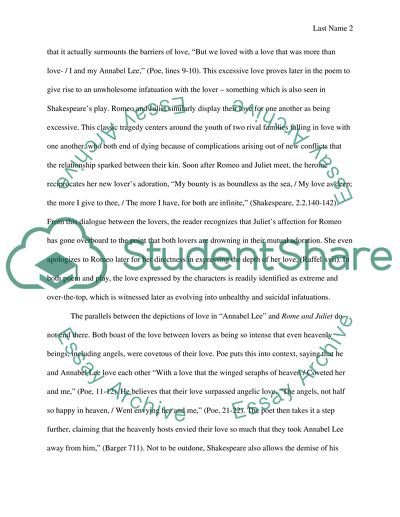Cite this document
(“Literature Comparison Paper of Annabel Lee Essay”, n.d.)
Retrieved from https://studentshare.org/literature/1430994-project
Retrieved from https://studentshare.org/literature/1430994-project
(Literature Comparison Paper of Annabel Lee Essay)
https://studentshare.org/literature/1430994-project.
https://studentshare.org/literature/1430994-project.
“Literature Comparison Paper of Annabel Lee Essay”, n.d. https://studentshare.org/literature/1430994-project.


